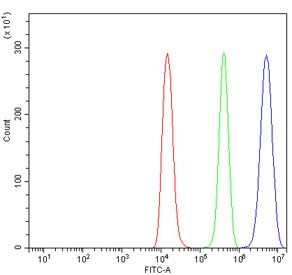Cookie-Einstellungen
Diese Website benutzt Cookies, die für den technischen Betrieb der Website erforderlich sind und stets gesetzt werden. Andere Cookies, die den Komfort bei Benutzung dieser Website erhöhen, der Direktwerbung dienen oder die Interaktion mit anderen Websites und sozialen Netzwerken vereinfachen sollen, werden nur mit Ihrer Zustimmung gesetzt.
Konfiguration
Technisch erforderlich
Diese Cookies sind für die Grundfunktionen des Shops notwendig.
"Alle Cookies ablehnen" Cookie
"Alle Cookies annehmen" Cookie
Ausgewählter Shop
CSRF-Token
Cookie-Einstellungen
FACT-Finder Tracking
Individuelle Preise
Kundenspezifisches Caching
Session
Währungswechsel
Komfortfunktionen
Diese Cookies werden genutzt um das Einkaufserlebnis noch ansprechender zu gestalten, beispielsweise für die Wiedererkennung des Besuchers.
Facebook-Seite in der rechten Blog - Sidebar anzeigen
Merkzettel
Statistik & Tracking
Endgeräteerkennung
Kauf- und Surfverhalten mit Google Tag Manager
Partnerprogramm
| Artikelnummer | Größe | Datenblatt | Manual | SDB | Lieferzeit | Menge | Preis |
|---|---|---|---|---|---|---|---|
| NSJ-RQ6846 | 100 µg | - | - |
3 - 10 Werktage* |
772,00 €
|
Bei Fragen nutzen Sie gerne unser Kontaktformular.
Bestellen Sie auch per E-Mail: info@biomol.com
Größere Menge gewünscht? Bulk-Anfrage
Bestellen Sie auch per E-Mail: info@biomol.com
Größere Menge gewünscht? Bulk-Anfrage
0.5mg/ml if reconstituted with 0.2ml sterile DI water. CIITA is a human gene which is mapped to... mehr
Produktinformationen "Anti-CIITA"
0.5mg/ml if reconstituted with 0.2ml sterile DI water. CIITA is a human gene which is mapped to 16p13. This gene encodes a protein with an acidic transcriptional activation domain, 4 LRRs (leucine-rich repeats) and a GTP binding domain. The protein is located in the nucleus and acts as a positive regulator of class II major histocompatibility complex gene transcription, and is referred to as the master control factor for the expression of these genes. Also, the protein binds GTP and uses GTP binding to facilitate its own transport into the nucleus. Once in the nucleus it does not bind DNA but rather uses an intrinsic acetyltransferase (AT) activity to act in a coactivator-like fashion. Mutations in this gene have been associated with bare lymphocyte syndrome type II (also known as hereditary MHC class II deficiency or HLA class II-deficient combined immunodeficiency), increased susceptibility to rheumatoid arthritis, multiple sclerosis, and possibly myocardial infarction. Several transcript variants encoding different isoforms have been found for this gene. Protein function: Essential for transcriptional activity of the HLA class II promoter, activation is via the proximal promoter. No DNA binding of in vitro translated CIITA was detected. May act in a coactivator-like fashion through protein-protein interactions by contacting factors binding to the proximal MHC class II promoter, to elements of the transcription machinery, or both. Alternatively it may activate HLA class II transcription by modifying proteins that bind to the MHC class II promoter. Also mediates enhanced MHC class I transcription, the promoter element requirements for CIITA-mediated transcription are distinct from those of constitutive MHC class I transcription, and CIITA can functionally replace TAF1 at these genes. Activates CD74 transcription (PubMed:32855215). Exhibits intrinsic GTP-stimulated acetyltransferase activity. Exhibits serine/threonine protein kinase activity: can phosphorylate the TFIID component TAF7, the RAP74 subunit of the general transcription factor TFIIF, histone H2B at 'Ser-37' and other histones (in vitro). Has antiviral activity against Ebola virus and coronaviruses, including SARS-CoV-2. Induces resistance by up- regulation of the p41 isoform of CD74, which blocks cathepsin-mediated cleavage of viral glycoproteins, thereby preventing viral fusion (PubMed:32855215). [The UniProt Consortium]
| Schlagworte: | Anti-CIITA, Anti-MHC2TA, Anti-MHC class II transactivator, CIITA Antibody |
| Hersteller: | NSJ Bioreagents |
| Hersteller-Nr: | RQ6846 |
Eigenschaften
| Anwendung: | WB, FC, Direct ELISA |
| Antikörper-Typ: | Polyclonal |
| Konjugat: | No |
| Wirt: | Rabbit |
| Spezies-Reaktivität: | human, mouse, rat |
| Immunogen: | Recombinant human protein (amino acids Y34-A1038) |
| Format: | Gene Regulation |
Datenbank Information
| KEGG ID : | K08060 | Passende Produkte |
| UniProt ID : | P33076 | Passende Produkte |
| Gene ID : | GeneID 4261 | Passende Produkte |
Handhabung & Sicherheit
| Lagerung: | +4°C |
| Versand: | +4°C (International: +4°C) |
Achtung
Nur für Forschungszwecke und Laboruntersuchungen: Nicht für die Anwendung im oder am Menschen!
Nur für Forschungszwecke und Laboruntersuchungen: Nicht für die Anwendung im oder am Menschen!
Hier folgen Informationen zur Produktreferenz.
mehr
Hier kriegen Sie ein Zertifikat
Loggen Sie sich ein oder registrieren Sie sich, um Analysenzertifikate anzufordern.
Bewertungen lesen, schreiben und diskutieren... mehr
Kundenbewertungen für "Anti-CIITA"
Bewertung schreiben
Loggen Sie sich ein oder registrieren Sie sich, um eine Produktbewertung abzugeben.
Zuletzt angesehen





